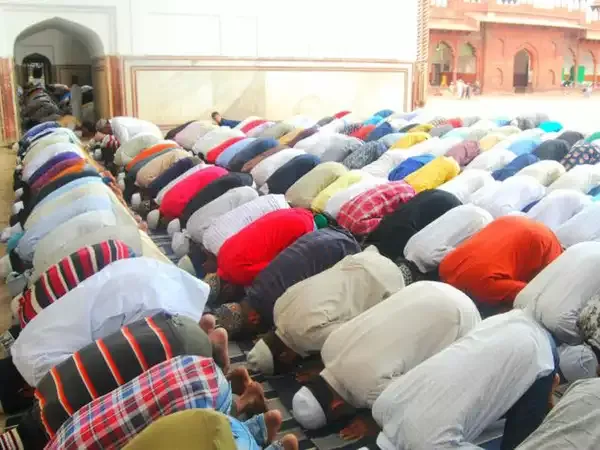'UP police criminalizing peaceful religious practice under the pretense of maintaining public order'
By A Representative
The Campaign Against State Repression (CASR), a network of several civil rights groups, has issued a strong condemnation of recent actions by Uttar Pradesh Police targeting Muslim minorities, labeling them as an alarming attack on constitutional rights and freedoms. On January 19, Uttar Pradesh Police arrested four individuals, including a village pradhan, and filed an FIR against a total of 20 identified and unidentified persons.
The Campaign Against State Repression (CASR), a network of several civil rights groups, has issued a strong condemnation of recent actions by Uttar Pradesh Police targeting Muslim minorities, labeling them as an alarming attack on constitutional rights and freedoms. On January 19, Uttar Pradesh Police arrested four individuals, including a village pradhan, and filed an FIR against a total of 20 identified and unidentified persons.
The charges stem from the offering of Namaz at a private residence in Sampant village, Bareilly district, which police claim disturbed public order and breached peace. CASR argues that criminalizing a peaceful religious practice under the pretense of maintaining public order is a direct assault on Article 25 of the Indian Constitution, which guarantees the freedom to practice, profess, and propagate religion.
The arrests in Bareilly are not isolated incidents but part of a broader pattern of state repression under the BJP-RSS government, which seeks to marginalize minorities and reduce them to second-class citizens. This crackdown reflects an escalating trend of targeting religious practices and cultural expressions.
Adding to the growing list of concerns, 10 more individuals have been arrested in connection with violence in Sambhal during a survey of the Mughal-era Shahi Jama Masjid on November 24, 2024, bringing the total number of arrests in the case to 70, including four women.
The arrests in Bareilly are not isolated incidents but part of a broader pattern of state repression under the BJP-RSS government, which seeks to marginalize minorities and reduce them to second-class citizens. This crackdown reflects an escalating trend of targeting religious practices and cultural expressions.
Adding to the growing list of concerns, 10 more individuals have been arrested in connection with violence in Sambhal during a survey of the Mughal-era Shahi Jama Masjid on November 24, 2024, bringing the total number of arrests in the case to 70, including four women.
Authorities allege that Shariq Satha, a Dubai-based criminal purportedly linked to underworld figure Dawood Ibrahim and the Pakistani intelligence agency ISI, orchestrated the violence. CASR questions the credibility of these claims, pointing out that they surfaced two months after the incident and appear to be an attempt to divert attention from systemic failures and the killing of five Muslims during the unrest.
In a separate incident, the family of Irfan, a detainee who died in custody at Raisatti police station in Sambhal, has accused police of custodial murder. They allege that authorities denied him access to essential medication, leading to his death. CASR highlights that custodial killings and extrajudicial encounters, particularly targeting Muslim minorities, have become distressingly common under the governance of Uttar Pradesh’s Chief Minister Yogi Adityanath.
CASR demands the immediate release of all individuals arrested in connection with the Sambhal violence and the Bareilly Namaz case. The organization also calls for an end to the criminalization of Muslim minorities and accountability for custodial deaths. They emphasize that these incidents reflect a broader campaign of oppression, which requires collective resistance from democratic and progressive groups.
In its statement, CASR urged organizations and individuals across India to come together and build a united movement against the ongoing state repression. They highlighted the need to protect constitutional rights and ensure justice for the oppressed and marginalized.
In a separate incident, the family of Irfan, a detainee who died in custody at Raisatti police station in Sambhal, has accused police of custodial murder. They allege that authorities denied him access to essential medication, leading to his death. CASR highlights that custodial killings and extrajudicial encounters, particularly targeting Muslim minorities, have become distressingly common under the governance of Uttar Pradesh’s Chief Minister Yogi Adityanath.
CASR demands the immediate release of all individuals arrested in connection with the Sambhal violence and the Bareilly Namaz case. The organization also calls for an end to the criminalization of Muslim minorities and accountability for custodial deaths. They emphasize that these incidents reflect a broader campaign of oppression, which requires collective resistance from democratic and progressive groups.
In its statement, CASR urged organizations and individuals across India to come together and build a united movement against the ongoing state repression. They highlighted the need to protect constitutional rights and ensure justice for the oppressed and marginalized.


Comments